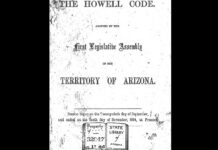The recent market volatility due to the coronavirus makes sense, given the tragic loss of life, shutdown of countries around the globe and cessation of global travel. While we’re not going to have absolute certainty anytime soon, market behavior is pointing to a likely recession, followed by a rapid recovery.
The Recession on the Horizon
Quickly changing circumstances and widespread uncertainty about when the pandemic may ebb have led many economists to predict a far greater impact to the U.S. economic growth than previously anticipated.
A recession occurs when the country’s Gross Domestic Product (GDP) declines for two quarters. Negative GDP and earnings are likely for two quarters or more, while the nation copes with the far-reaching impacts of the coronavirus outbreak, including cancelled gatherings, closed schools, shuttered restaurants and an interruption in business as usual. There’s no clear indication of when American life may return to normal.
The Subsequent Recovery
It’s true that near-term uncertainty will feed further volatility. But the good news is that event-driven recessions are frequently short-lived. During similar scenarios in the past, events are followed by a rapid recovery in economic growth as the shock lessens and policy easing gains traction. Recent actions taken by the Federal Reserve and officials in Washington are generally seen as reassuring with more action likely to come.
While every virus and pandemic bring unique challenges and economic impacts, examining past health crises can show us how to successfully respond. As we’ve witnessed before, moments of high volatility like this one usually level out with higher equity prices in one or two years’ time. During previous viral outbreaks, the S&P 500 saw declines between 6% and 13% that lasted an average of 62 days before beginning to recover and averaging 23% in gains over the subsequent 12 months.
Moreover, the government’s decisions to cut rates and inject liquidity into the financial system are timely and appropriate. Other moves, including the distribution of additional testing kits, are critical for authorities to contain the virus.
Containment is the Best Stimulus
We’ll provide you with some more good news (because we all could use it): the U.S. economy was strong before the sudden spread of the coronavirus. Policy action from the federal government should cushion fallout in the coming months. However, quick and comprehensive virus containment is by far the most effective stimulus.
Even though the rapid escalation of the coronavirus crisis has shocked global economic markets, containment efforts have made steady progress. China, the epicenter for the outbreak, is seeing fewer new cases and many companies that were closed in February have reopened. Employees are returning to work and factories are resuming production.
It may be weeks until a clearer picture emerges of the full economic and human impacts of the coronavirus outbreak. Until then, we recommend investors to keep a level head and respond to the quickly changing circumstances logically. Additionally, consulting an experienced financial advisor can provide some peace of mind during these tumultuous times.



















